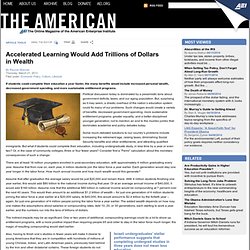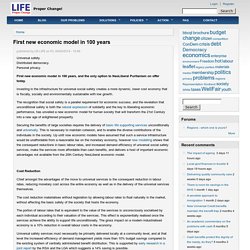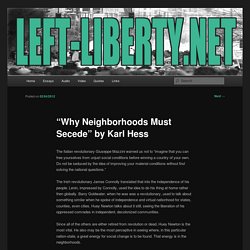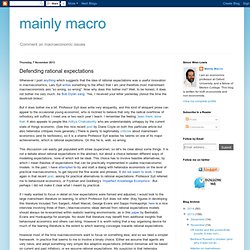

Origins and Techniques of Monarch Mind Control. Monarch Programming is a method of mind control used by numerous organizations for covert purposes.

It is a continuation of project MK-ULTRA, a mind-control program developed by the CIA, and tested on the military and civilians. The methods are astonishingly sadistic (its entire purpose is to traumatize the victim) and the expected results are horrifying: The creation of a mind-controlled slave who can be triggered at anytime to perform any action required by the handler. While mass media ignores this issue, over 2 million Americans have gone through the horrors of this program. This article looks at the origins of Monarch programming and some of its methods and symbolism. NOTE: This article contains disturbing elements and might trigger Monarch survivors. Monarch programming is a mind-control technique comprising elements of Satanic Ritual Abuse (SRA) and Multiple Personality Disorder (MPD). Growthism.
You know the alien cults that announce to their followers that next year, on October 28th, at precisely 4:05 pm, the master race will arrive, and save humanity?

Of course, the aliens never arrive. But that doesn’t stop the cult from believing. It only strengthens their belief. If, as I’d bet you do, you’re head-shakingly familiar with said cults, allow me to ask you a question. Debatable. New Politika. Accelerated Learning Would Add Trillions of Dollars in Wealth. Political discussion today is dominated by a pessimistic tone about government deficits, taxes, and our aging population.

But, surprising as it may seem, a drastic overhaul of the nation’s education system could fix many of our problems. Such changes would create a variety of benefits: decreased government spending; more sustainable entitlement programs; greater equality; and a better-disciplined younger generation; not to mention an end to the mumbo jumbo that dominates academia and policy debates today. Some much-debated solutions to our country’s problems include increasing the retirement age, raising taxes, diminishing Social Security benefits and other entitlements, and attracting qualified immigrants. GOD_Over_Djinn comments on New spin on an old question: Is the university economics curriculum too far removed from economic concerns of the real world?
The_Old_Gentleman comments on Anarcho-"Capitalism," as described by a mutualist's comment in /r/anarcho-capitalism. Thoughts? Inequality and Web Search Trends. Photo In the hardest places to live in the United States, people spend a lot of time thinking about diets and religion.

Political Philosophy. First new economic model in 100 years. Universal safety.

Distributed democracy. Personal privacy. First new economic model in 100 years, and the only option to NeoLiberal Puritanism on offer today. Investing in the infrastructure for universal social safety creates a more dynamic, lower cost economy that is fiscally, socially and environmentally sustainable with low growth. The recognition that social safety is a parallel requirement for economic success, and the revelation that unconditional safety is both the natural expression of solidarity and the key to liberating economic performance, has unveiled a new economic model for human society that will transform the 21st Century into a new age of enlightened prosperity. Securing the benefits of large societies requires the delivery of basic life supporting services unconditionally and universally.
“Why Neighborhoods Must Secede” by Karl Hess. The Italian revolutionary Giuseppe Mazzini warned us not to “imagine that you can free yourselves from unjust social conditions before winning a country of your own.

The FBI maintains an 83-page glossary of Internet slang. And it is hilariously, frighteningly out of touch. The FBI headquarters IRL.

That’s “in real life,” to you. (Jeffrey MacMillan/Capital Business) Capitalism is God's Will and the Cat Drank all the Milk: How our Language Creates our Biggest Problems and Why We Can't do Anything about It. Felipe Del Valle (CC BY 2.0) I have a confession to make, one that a good number of readers will find disgusting and emetic and prevent many of them from reading further.

Others, however, might relate or find it interesting regardless, and so those people will continue to read, which, I suppose, is good enough for me. Helping Economists Escape Economics. Defending rational expectations. Whenever I post anything which suggests that the idea of rational expectations was a useful innovation in macroeconomics, Lars Syll writes something to the effect that I am (and therefore most mainstream macroeconomists are) “so wrong, so wrong”.

Your Lifestyle Has Already Been Designed. Well I’m in the working world again.

I’ve found myself a well-paying gig in the engineering industry, and life finally feels like it’s returning to normal after my nine months of traveling. Because I had been living quite a different lifestyle while I was away, this sudden transition to 9-to-5 existence has exposed something about it that I overlooked before.
HumanBeingsForPeace.org. Intrinsic value (ethics) It is contrasted with instrumental value (or extrinsic value), the value of which depends on how much it generates intrinsic value.[2] For an eudaemonist, happiness has intrinsic value, while having a family may not have intrinsic value, yet be instrumental, since it generates happiness. Intrinsic value is a term employed in axiology, the study of quality or value. Other names for intrinsic value are terminal value, essential value, principle value or ultimate importance. Subjective theory of value.
Overview[edit] According to the subjective theory of value, voluntary trades between individuals imply that both parties to the trade subjectively perceive the goods, labour or money they receive as being of higher value to the goods, labour or money they give away. The subjective-value theory holds that one can create value simply by transferring ownership of a thing to someone who values it more highly, without necessarily modifying that thing. Where wealth is understood to refer to individuals' subjective valuation of their possessions, voluntary trades may increase the total wealth in society. Paradox of hedonism. The paradox of hedonism, also called the pleasure paradox, is a concept in ethics that focuses upon pleasure and happiness as strange phenomena that do not adhere to normal principles. The philosopher Henry Sidgwick was first to note in The Methods of Ethics that the paradox of hedonism is that pleasure cannot be acquired directly, it can only be acquired indirectly.[1] Overview[edit]
Economic liberalism. Economic liberalism is the ideological belief in organizing the economy on individualist lines, meaning that the greatest possible number of economic decisions are made by individuals and not by collective institutions or organizations.[1] It includes a spectrum of different economic policies, such as freedom of movement, but it is always based on strong support for a market economy and private property in the means of production. Although economic liberalism can also be supportive of government regulation to a certain degree, it tends to oppose government intervention in the free market when it inhibits free trade and open competition.
However, economic liberalism may accept government intervention in order to remove private monopoly, as this is considered to limit the decision power of some individuals. While economic liberalism favors markets unfettered by the government, it maintains that the state has a legitimate role in providing public goods.[2] Ideological basis[edit] Austrian School. The Austrian School is a school of economic thought that is based on methodological individualism.[1][2][3][4] It originated in late-19th and early-20th century Vienna with the work of Carl Menger, Eugen von Böhm-Bawerk, Friedrich von Wieser, and others.[5] Current-day economists working in this tradition are located in many different countries, but their work is referred to as Austrian economics. Among the theoretical contributions of the early years of the Austrian School are the subjective theory of value, marginalism in price theory, and the formulation of the economic calculation problem, each of which has become an accepted part of mainstream economics.[6] Many economists are critical of the current-day Austrian School and consider its rejection of econometrics and aggregate macroeconomic analysis to be outside of mainstream economic theory, or "heterodox.
Paradox of value. Inequality. Why Is Planet Earth On Life Support? Make Drug Use Pay Its Own Way: Laurence Kotlikoff, Glenn Loury. List of liberal theorists. Individual contributors to classical liberalism and political liberalism are associated with philosophers of the Enlightenment. Liberalism as a specifically named ideology begins in the late 18th century as a movement towards self-government and away from aristocracy. Montesquieu. Serendipity: Information and commentary not to be found in the mainstream media. Center for Inquiry.